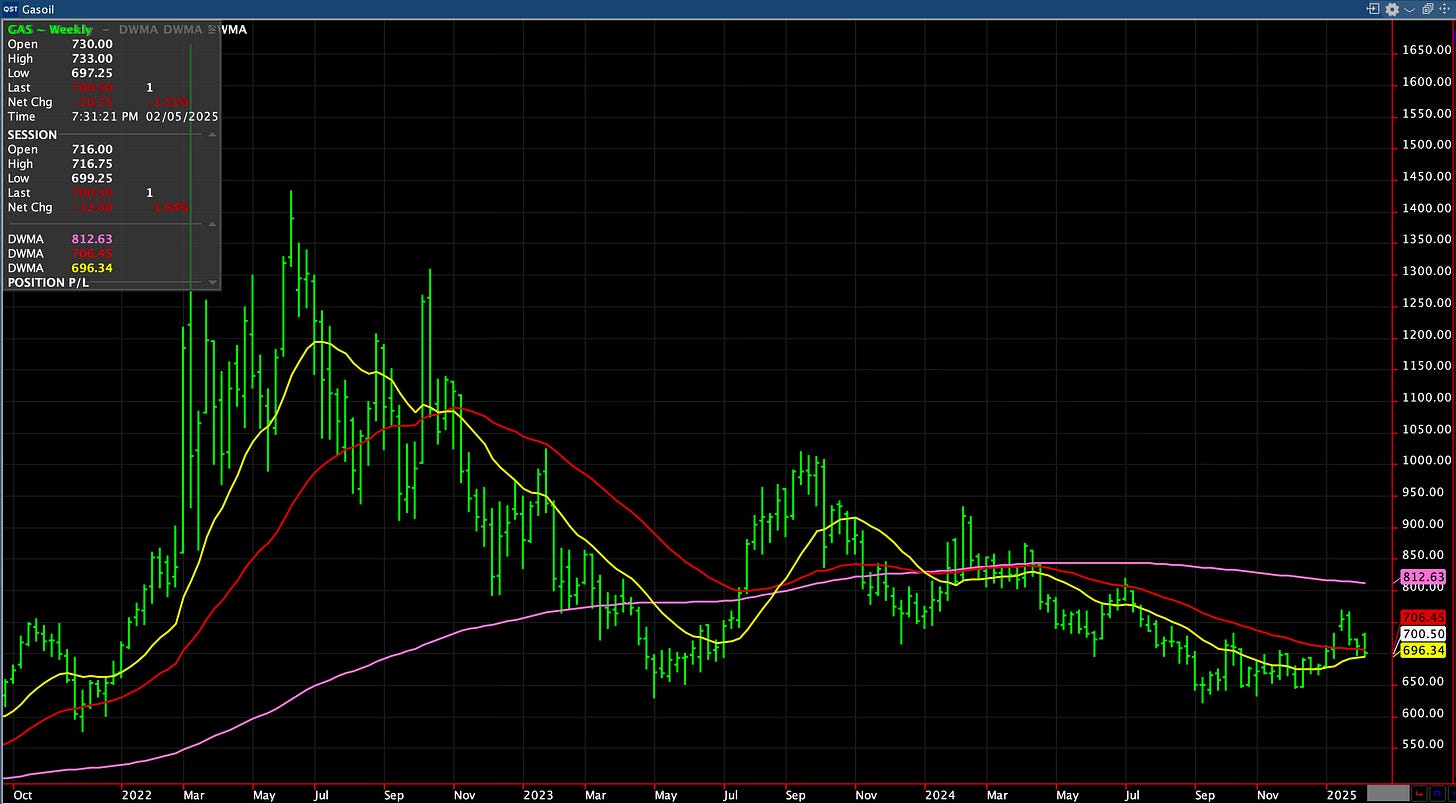Diesel global demand destruction never good for RD/Biodiesel
The global diesel market is facing mounting pressure from a perfect storm of bearish factors, with heating oil cracks around $29/bbl continuing to incentivize strong refinery production despite clear signs of demand destruction. This robust refining margin environment has kept refineries running at high utilization rates, contributing to an oversupplied market that's now pressuring both conventional and renewable diesel margins. Russian seaborne diesel exports have surged to 4.2 million metric tons in January, up 24% from December, as refiners capitalize on strong economics despite U.S. sanctions.
The persistence of attractive heating oil cracks has created a self-reinforcing cycle of oversupply. Refiners, particularly in Asia and the Middle East, are maintaining high run rates to capture these margins, with reports of increasing Northeast Asian-origin cargoes heading to Singapore "given a lack of demand there." This production push comes as physical diesel markets show clear weakness - 10ppm gasoil cash differentials have compressed to around 20 cents a barrel, with persistent offers finding no buyers in the open trading window.
The impact is particularly severe in the biofuel sector, where the Bean Oil-Gasoil Spread (BOGO) has now compressed to below $278/MT, down dramatically from December levels above $340/MT. This compression reflects both the abundance of conventional diesel supply and growing concerns about demand fundamentals. Major players like Phillips 66 and Marathon are reporting increased pressure on renewable diesel margins, with regulatory uncertainty compounding the market weakness. The situation is especially challenging for biodiesel producers, who lack the operational flexibility of conventional refiners to capture varying crack spreads.
Adding to the bearish outlook is the feedstock picture, where Brazil's projected record soybean crop of 170.9 million metric tons (up 14% year-over-year) coincides with India's dramatic shift away from palm oil imports. January palm oil imports into India fell 46% to 272,000 metric tons as refiners pivoted to cheaper soybean oil alternatives. This abundance of feedstock supply, combined with strong conventional diesel production incentivized by heating oil cracks, suggests continued pressure on biofuel margins in the coming months.
Looking ahead to the next 4-6 weeks, the persistence of strong heating oil cracks above $25/bbl could exacerbate the current market weakness by encouraging continued high refinery run rates. Without significant demand improvement or voluntary production cuts, both conventional and renewable diesel markets face a challenging period of potential forced rationalization. The situation is particularly precarious for biofuel producers, who must navigate both the weakness in conventional diesel markets and compressed conversion margins. Market participants will be closely watching for any signs of demand recovery or policy intervention that could help balance the market, but for now, the combination of strong refining incentives and weak demand fundamentals points to continued pressure across the diesel complex.





